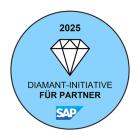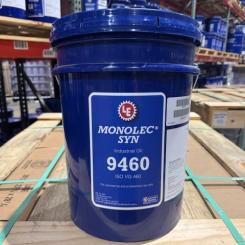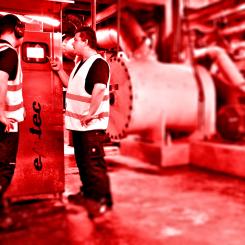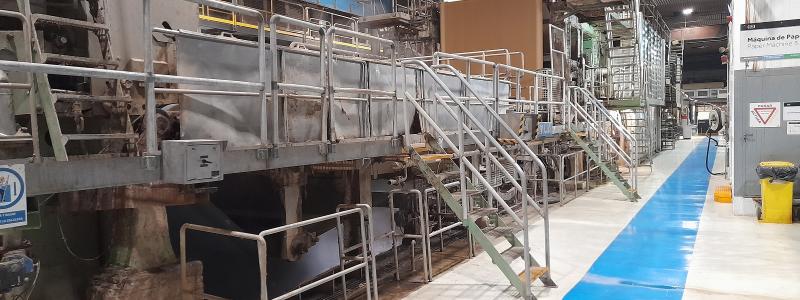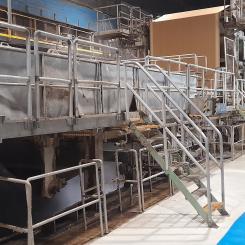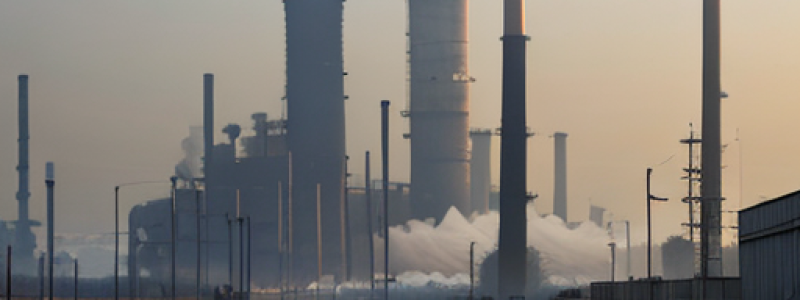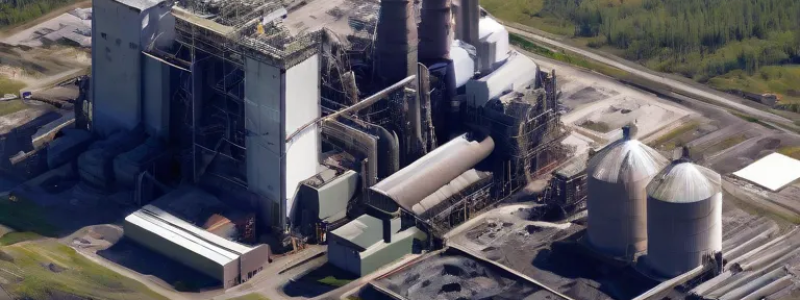Nippon Paper Industries Co., Sumitomo Corporation and Green Earth Institute Co. have reached an agreement to establish a joint venture company, Morisora Bio Refinery LLC, which will focus on the production and sale of bioethanol and biochemicals derived from woody biomass. Establishment of the joint venture is scheduled for March 2025.
The joint venture will construct a semi-commercial plant at Nippon Paper's Iwanuma Mill in Miyagi Prefecture. Using sustainable forest resources from the Tohoku region, such as wood scraps from sawmills, GEI's proprietary low-carbon, cost-efficient bioethanol production process will be used to produce over 1,000 kL of bioethanol annually starting in 2027.
Subsequently, with the full-scale introduction and adoption of sustainable aviation fuel (SAF / *1) in Japan anticipated around 2030, the joint venture is targeting the operation of a commercial plant capable of producing tens of thousands of kiloliters of bioethanol and biochemicals per year.
On February 3, 2023, Nippon Paper, Sumitomo Corporation and GEI announced a Memorandum of Understanding (MOU) on "Collaboration for the First Commercial Production of Cellulosic Bioethanol from Woody Biomass in Japan and Its Development into Bio-chemical Products." Based on this agreement, the three companies launched the "Morisora Project" with the slogan "Turning the Power of Forests into the Power of Flight." The project focuses on the promotion and expansion of SAF and is affiliated with the all-Japan initiative "ACT FOR SKY," aiming for widespread SAF production. Additionally, the project has been selected as a pilot project within the SAF Certification Task Group of the Public-Private Council to Promote the Introduction of Sustainable Aviation Fuel (SAF).
GEI and Nippon Paper are conducting a grant and commission project under the National Energy and Industrial Technology Development Organization (NEDO) titled "Development of the world’s best-class low-carbon bioethanol production process using 100% domestic wood biorefinery" as part of the second call for the "Bio-manufacturing Revolution Promotion Project."
The bioethanol produced by the project will be a low-carbon, non-food biomass-based ethanol (E2G) made from wood chips sourced from the Tohoku region. By using locally sourced wood chips, the project will reduce CO2 emissions during transportation. Further, the manufacturing process will utilize carbon-neutral energy derived from lignin, a component of wood biomass, significantly reducing fossil-derived CO2 emissions and contributing to the realization of a sustainable, decarbonized society. The bioethanol will be used for SAF as well as gasoline blending, fuel cells, cosmetics and chemical feedstock.
Additionally, the project will actively explore the effective use of bio-generated CO2 (*2) and fermentation by-products. Moreover, beyond utilizing the power of forests, efforts will be made to enhance forest resources by promoting the distribution of elite tree (*3) seedlings in the Tohoku region, further contributing to decarbonization, local production for local consumption, and the sustainable circulation of domestic forest resources.
Aiming to become a leading comprehensive biomass company, Nippon Paper will leverage its experience in papermaking and pulp manufacturing technology to quickly establish large-scale production and a robust supply system for woody biomass-derived bioethanol. This will accelerate the company's market entry into the biochemical sector and contribute to building a decarbonized society and working to prevent global warming.
Sumitomo Corporation is developing businesses at the foundation of a sustainable energy cycle in society, aiming for carbon neutrality in its business activities by 2050. Through this project, Sumitomo Corporation plans to ensure the stable procurement of raw materials, promote the widespread adoption of domestically produced SAF and contribute to Japan's energy security. Additionally, it will apply knowledge gained from this project to the development of SAF manufacturing and sales businesses globally, and by participating in and promoting multiple projects with region-specific raw materials and production methods, work to decarbonize the aviation industry while ensuring a stable supply of low-carbon biofuels.
As a company with the mission of "Fostering green technology and walking with the Earth" leveraging biomanufacturing technology, GEI contributes to the realization of a decarbonized society through commercial-scale production of bioethanol from non-food biomass and the social implementation of biomanufacturing in Japan.
*1 Sustainable Aviation Fuel: A sustainable fuel that significantly reduces CO2 emissions from production to combustion, compatible with existing infrastructure.
*2 Bio-generated CO2: CO2 emitted from biological raw materials.
*3 Elite trees: Fast-growing trees with superior characteristics, including growth rates 1.5 times higher than conventional species, pollen production less than half that of typical cedar and cypress trees, and straighter, more uniform trunks.

